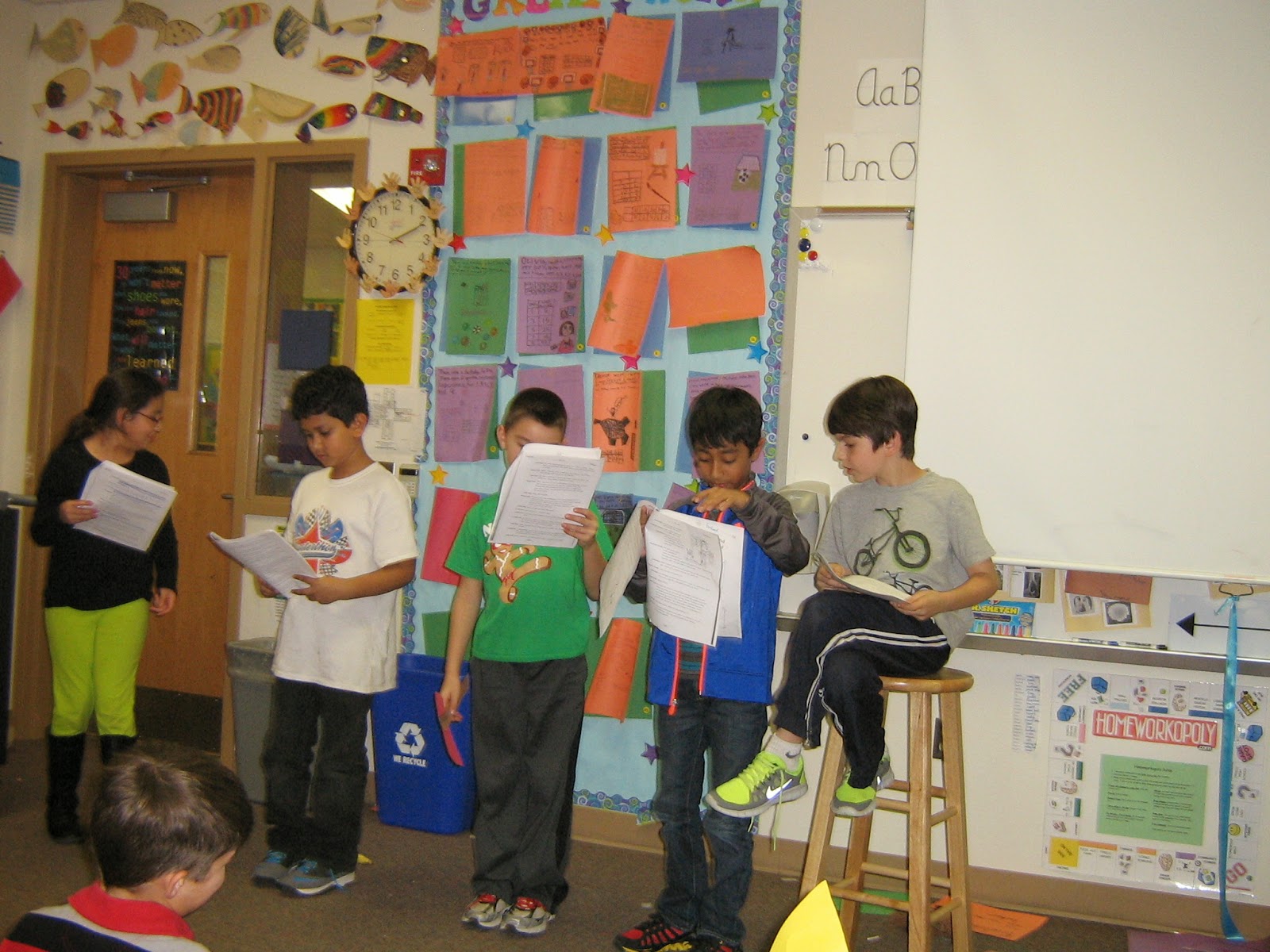The class has such wonderful talent to read and perform their reader's theater! Below are pictures from their shows.
Mrs. Bass' 3rd Grade Blog
Friday, May 2, 2014
Open House
Open House was a success! The students have work saved from the entire year to present. I'm so proud of the hard work!
Monday, April 28, 2014
Field Day!
What a beautiful day for Field Day! This was a great way to end STAAR testing week. We began our day on the bounce houses. Then we had so much fun getting outside and competing with the other third grade classes. I loved to see the class hop and run! We have some athletes in our class!
Monday, April 21, 2014
Author Visit - Kim Norman
We had a wonderful time at the author visit and to hear Kim Norman talk about her books. She read as students helped act out her book called "I know a Wee Piggy." She talked about how she used her love of writing and created books. I know we have excellent writers in our class. Maybe one of the next great writers is in our class?
Visit her website:
http://kimnormanbooks.com/www.kimnormanbooks.com/Kim_Norman_childrens_author_school_visits.html
Visit her website:
http://kimnormanbooks.com/www.kimnormanbooks.com/Kim_Norman_childrens_author_school_visits.html
Tuesday, March 25, 2014
Reader's Theater Pictures
The class did a fabulous job presenting their reader's theater to end our folk tales unit. We have amazing actors! I'm so glad that we have such great readers!
Sunday, February 23, 2014
Third Grade Musical
The class did an amazing job performing this year's third grade musical! I am so proud of their hard work and loved their performance!
Saturday, January 11, 2014
2 digit x 1 digit multiplication
We have been practicing how to multiply 2 digit x 1 digit problems. There are many ways and there is no one right way! Each student needs to find their way that works for them. By the end of third grade, students should be able to solve multiplication problems without a picture. At home, please keep practicing!!
Base Ten Model:
This is a pictural model of how to multiply 2 digit x 1 digit. Students use a base ten paper and draw out the tens and the ones and find the total by adding the tens and ones together.
Repeated Addition:
Many students feel comfortable adding to find the product. Students need to decide the better choice, to add 21 groups of 4 or to add 4 groups of 21. When adding a small number several times, mistakes often happen so students need to be careful.
Area Model:
This is taking the base ten model, but simplifying it. Students need to think of the problem as an array. The one digit number goes on the left and is multiplied by the two digit number. The two digit number is broken into the tens and ones. Then the tens and ones are multiplied by the one digit number. Then the products are added to find the final product.
Partial Products:
This is similar to the area model, but without the boxes.
The 2 digit number is broken into the tens and ones. These are multiplied by the one digit number. Then added the two products and find the final answer.
To view a video on how to solve these partial products.
Subscribe to:
Comments (Atom)





































